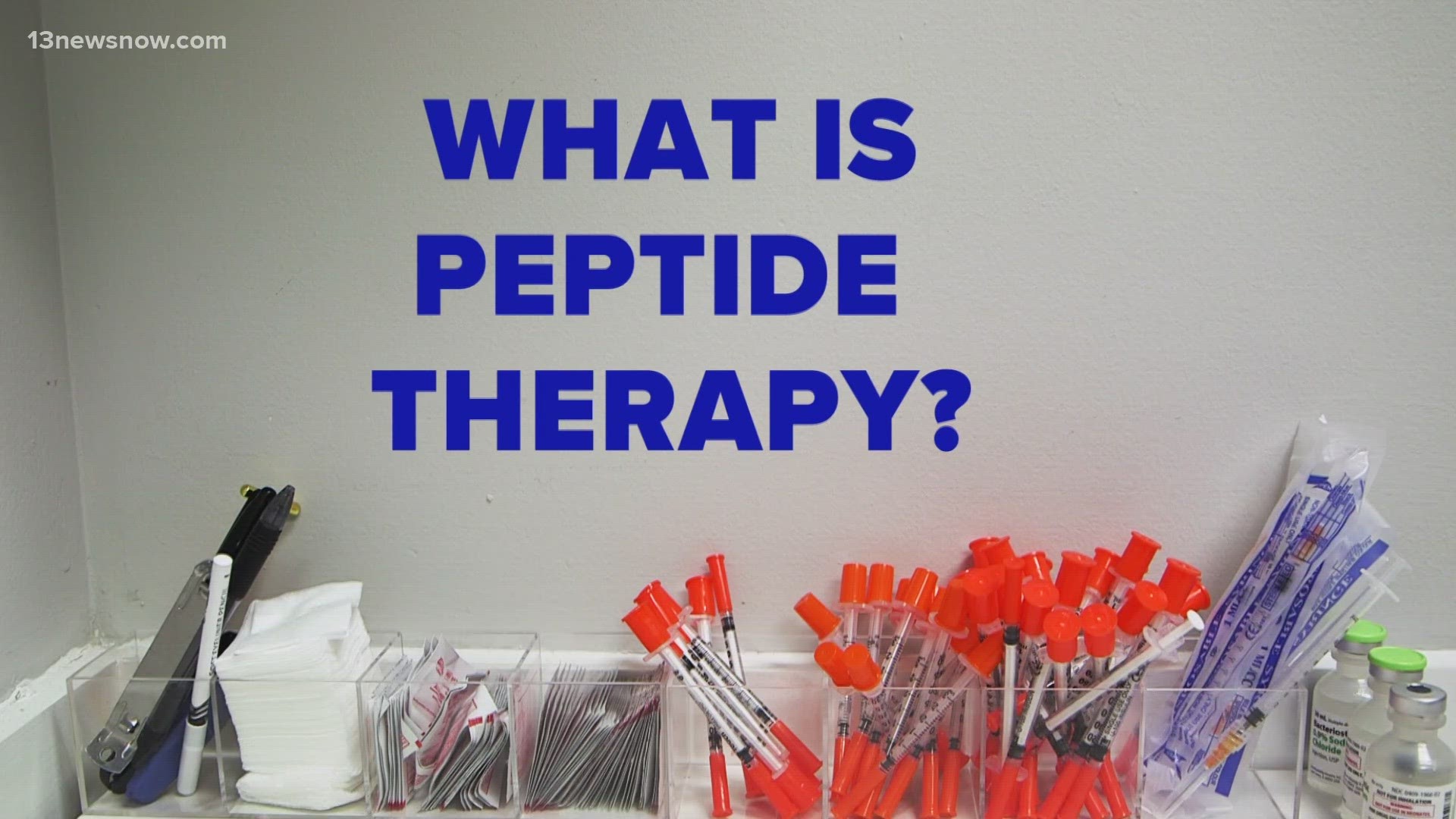NORFOLK, Va. — No matter how hard we can work to look and feel younger, there is nothing we can do to turn back the clock physically.
Recently, new federal parameters have come down for a growing health and wellness trend, as Virginia patients and wellness facilities will now navigate the restrictions surrounding peptide therapy treatments.
One scroll through Google, or even social media sites like TikTok, will show the increasing interest in incorporating peptides as part of someone's health and wellness plan.
But what exactly is it, and what do recent federal changes mean for the industry?
What are peptides?
Peptides are chains of amino acids, which are often referred to as the "building blocks" for protein molecules.
Peptides are naturally occurring in the body, and a chain can contain anywhere from two to several dozen amino acids connected through peptide bonds, which can then be broken down as energy for the body.
Certain drugs such as Ozempic and Mounjaro are classified as peptides.
While peptides are naturally occurring in the body, there is growing interest in the use of synthetic peptide products in the health community.
"What’s on the market so far, for my patients on it, it’s helped them recover quicker than normal," said Allison Lee, who runs Revitalize Wellness and Medspa in Midlothian.
According to WebMD, peptides are believed to help with anti-aging, muscle recovery, and weight loss. They can be found in cosmetic products such as lotions and creams, but peptide treatments have been available at wellness and health clinics in the form of synthetic injectables.
They are drawn from vials and can be self-administered.
Until recent regulatory changes, clinics that sell them to patients can get their supplies from compound pharmacy providers and other pharmaceutical suppliers.
Lee told 13News Now peptide vials, which can last as long as a month, can range anywhere from $100 to $200 per vial. Patients often inject themselves multiple times a week for an extended period of time.
“Is this actually helping me? From what I’ve seen and felt, I think it is," Ray Carr said, a trainer outside of Richmond. "Keeping notes on how I felt in the mornings. The stiffness and clicking in my knee is gone. My mobility is better."
Oversight
Synthetic peptide products are not regulated or approved by the Food and Drug Administration.
In September, the FDA released an update to "Safety Risks Associated with Certain Bulk Drug Substances Nominated for Use in Compounding."
At least 18 substances included "safety risk" notes that said they "may have complexities with regard to peptide-related impurities."
The FDA noted it would "consider taking action against a compounder or outsourcing facility" for compounding these substances.
Several of the substances contain different concerns and adverse effects for each listing, including an acknowledgment that the FDA lacks sufficient evidence to determine whether it would "cause harm" when administered to humans.
More unknowns
Lee said that while many peptide products have been taken off the market because of recent changes, some peptide products -- including some for weight loss -- remain available.
13News Now reached out to several wellness and health clinics in the Hampton Roads area that listed peptides as one of their services. Several facilities did not respond, and some declined an interview altogether.
One clinic owner, who wished to remain anonymous, shared they were advised by their attorney not to follow through with an interview.
Two major health research facilities in Virginia and a local hospital system declined to speak on the subject as well. The respective spokespeople said they did not have a knowledgeable expert about peptide injections.

